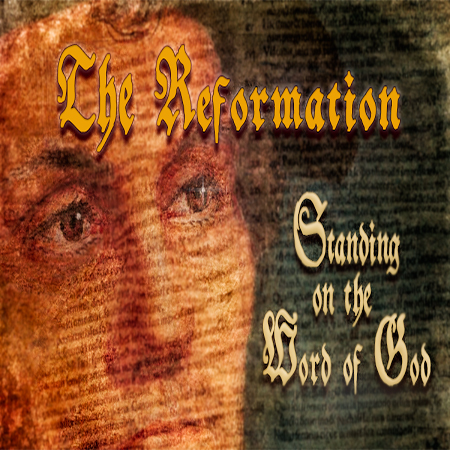“The Necessity of Reform: The Church’s Crisis of Authority”
14 But as for you, continue in what you have learned and have firmly believed, knowing from whom you learned it 15 and how from childhood you have been acquainted with the sacred writings, which are able to make you wise for salvation through faith in Christ Jesus. 16 All Scripture is breathed out by God and profitable for teaching, for reproof, for correction, and for training in righteousness, 17 that the man of God may be complete, equipped for every good work. – 2 Tim. 3:14-16
As we begin our fall series on the history and significance of the Reformation, we must start by considering the central issue of disagreement between Roman Catholics and Protestants. At the heart of the Protestant Reformation is a question: What is a Christian’s authority for belief and practice? How we answer this question is of great significance because it will affect every area of our theology as well as the ways in which we choose to live. In order to make sense of how the church came to such a crisis point on this issue in the time leading up to the Reformation, we must first consider the historical rise of the church as an institution. With these things in mind, we can then examine the ways in which certain men sought to reform church, calling her to return to the Scriptures which are the only true authority for a believer.
The institutional church did not arise in a vacuum, but was instead the result of many historical developments over the course of roughly 1000 years. While the early church had some visible form and structure (spiritual leadership from elders and practical organization from deacons), it was not formally organized with an institutional hierarchy. This developed, however, in the decades following the deaths of the apostles as bishops arose to oversee various collections of churches. In the 4th C, the emperor Constantine converted to Christianity and legalized it as a religion within the empire. This was the first step in the journey to the church becoming a formalized institution in which both political and religious power were concentrated.
As the centuries passed, the development of universities in Europe and the rediscovery of much of the academic learning of the ancient world led to the rise of scholastic theology which sought to reconcile biblical doctrine with Greek philosophy. Some of the results of this included the Roman Catholic doctrinal explanations of Papal Supremacy as well as the understanding of the Eucharist (the Lord’s Table). By the late middle ages (1300-1500) the church considered itself to have been given authority by God over Christian belief and practice (in the form of canon law) because it was headed by the Pope who was no less than the representative of Christ on earth.
Although the Roman church had claimed this authority for itself, there were some who denied many of the doctrines that the church held to because they did not find those doctrines within the Scriptures. One such precursor to the reformers was and Englishman named John Wycliffe. His study of the Scriptures led him to conclude that the true Church was not an outward institution, but was instead the invisible body of those who were truly believers in Christ. He also believed that the Scriptures were the complete revelation of God and therefore the only true authority for the believer. It was not the Roman church who had authority of the teachings of the Bible, but it was the Bible which was to be the authority by which canon law, church tradition, and even the papacy were judged. Luther argued along the same lines, noting that “A simple layman armed with Scripture is to be believed above a pope or council with out it.” In response to the Roman church’s complex doctrines surrounding the rule of faith, the reformers responded with a simple doctrine which we now refer to as sola scriptura.
When this vital doctrine is applied, there are several clear teachings which emerge. First, the true Church’s primary existence is heavenly (Phil. 3:20) and spiritual (1 Cor. 12:4) as those who are truly saved, and not as an physical institution . Second, it is the Bible which constitutes or is the origin of the true Church because it is the Word of God alone which is capable of bringing salvation to sinful human beings (2 Tim. 3:15). Third, the true Church possesses the authority of God in so far as it proclaims the authoritative Word of God (Matt. 28:18-20) and recognizes Scripture as the rule of faith. Finally, while the true Church is comprised of individuals who are all believer-priests (1 Pet. 2:9) who are all equal before God, the church is a collective body which must be led by biblically qualified shepherds (1 Pet. 5:1-11).
Join us this Sunday as we come together around the Word of God to consider the powerful work of the Spirit in turning God’s people back to the Scriptures during the time of the Reformation. We will also celebrate the unity we have together in Christ during our monthly fellowship meal.
Soli Deo Gloria.
-Thomas

